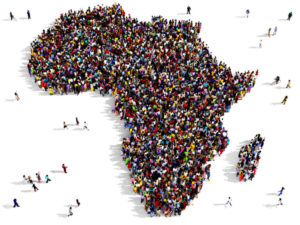 In 2021, coups d’état ousted four heads of state in sub-Saharan Africa. Army interventions in Chad, Mali, Guinea and Sudan halted a years-long decline in military takeovers. Some heralded this as the comeback of the army in African politics, contributing to a new phase of ‘democratic backsliding’, note University of Sussex analysts and
In 2021, coups d’état ousted four heads of state in sub-Saharan Africa. Army interventions in Chad, Mali, Guinea and Sudan halted a years-long decline in military takeovers. Some heralded this as the comeback of the army in African politics, contributing to a new phase of ‘democratic backsliding’, note University of Sussex analysts and
The literature on political survival provides a more compelling narrative to explain political change in competitive autocracies. A leader’s survival is conditioned on the support of senior elites, they write for The Conversation:
The concept of a ‘political marketplace’ has aptly captured the transactional nature of regime strategies to determine association, loyalty and alliances with senior elites…. Drawing on these insights, our recently published paper seeks to explain political change in African competitive autocracies using the notion of ‘regime cycles’. This framework, which produced rich insights into the failed democratisation processes of the post-communist states during the 1990s, suggests that elites must act collectively if they are to challenge the leader, identifying four stages within a regime cycle.
 With respect to the recent coup in Sudan, it’s time for international actors to stop pulling punches, argues Dave Peterson, Senior Director of the Africa Program of the National Endowment for Democracy and author of “Africa’s Totalitarian Temptation: The Evolution of Autocratic Regimes.” Targeted sanctions, seizure of assets, prosecution by the ICC, and material support for Sudan’s democratic movement are imperative, he wrote for Just Security.
With respect to the recent coup in Sudan, it’s time for international actors to stop pulling punches, argues Dave Peterson, Senior Director of the Africa Program of the National Endowment for Democracy and author of “Africa’s Totalitarian Temptation: The Evolution of Autocratic Regimes.” Targeted sanctions, seizure of assets, prosecution by the ICC, and material support for Sudan’s democratic movement are imperative, he wrote for Just Security.
External powers that are financially or politically propping up coup leaders must face costs, says analyst Joseph Siegle. Director of Research at the Africa Center for Strategic Studies. In addition to blocking the democratic aspirations of millions of Africans, these actors are effectively undermining a rules-based international system while reaping the benefits from it, he contends.
The four stages of the cycles of power between a leader and their rivals which determine their survival are accommodation, consolidation, factionalisation and crisis, not necessarily in chronological order, and add:
- During the accommodation phase, leaders build coalitions by distributing rents and authority among senior elites. The intention of this stage is to reward loyalists and co-opt prospective allies. The incentive is integration and inclusion.
- The narrowing of competitive influences leads to the consolidation stage. The leader seeks to assert authority over a coalition of ‘rival allies’. This phase coincides with the height of a leader’s authority, where the threat of being removed is lowest….
- Factions can consist of rival senior elites, who tactically join forces to get the leader to spread power. The intention is not to depose the leader or split the regime, but rather to bargain the terms of inclusion. Leaders also use disorder to try to prevent elite cooperation to lessen the strength of senior elite coalitions.
- However, a crisis may occur when factions decide to take advantage of a critical juncture to forcibly reshuffle the ruling coalition. The jostling for power among senior elites typically leads to such crisis moments. This can result in military takeovers, forced resignations, constitutional coups or power-sharing agreements.
Here lies an apparent paradox: despite decades in which democratic institutions have become prevalent across the continent, African states continue to be vulnerable to military takeovers and autocratic forms of power, and contend. RTWT







